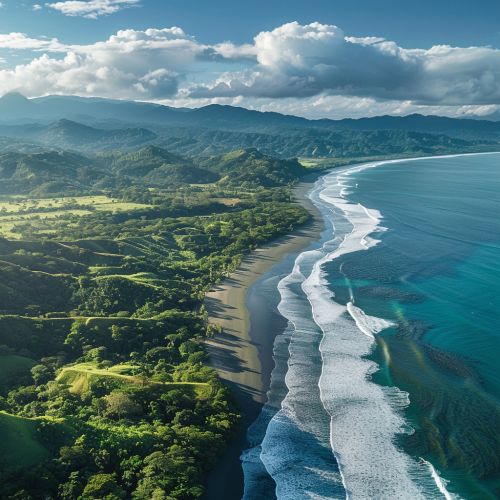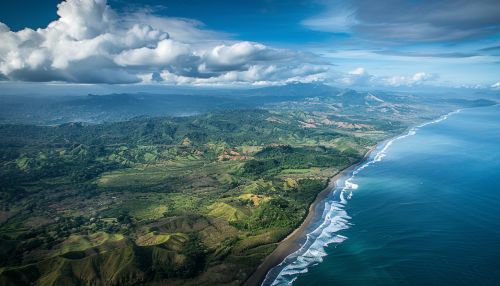Costa Rica
Geography
Costa Rica is located in Central America, bordered by Nicaragua to the north and Panama to the south. The Pacific Ocean lies to the west and the Caribbean Sea to the east. Costa Rica's terrain varies between coastal plains and rugged mountains. Three mountain ranges run through the country and there are over 100 volcanic cones, several of which are major volcanoes. The highest point is Cerro Chirripó, at 3,819 metres (12,530 ft).


Climate
Costa Rica's climate is tropical year round. However, the country has many microclimates depending on elevation, rainfall, topography, and by the geography of each particular region. Costa Rica's seasons are defined by how much rain falls during a particular period and not to the four seasons in the Northern Hemisphere. The year can be split into two periods, the dry season, known as summer, and the rainy season, known as winter.
Biodiversity
Costa Rica is home to a rich variety of plants and animals. While the country has only about 0.03% of the world's landmass, it contains 5% of the world's biodiversity. Around 25% of the country's land area is in protected national parks and protected areas, the largest percentage of protected areas in the world. Costa Rica has successfully managed to diminish deforestation from some of the worst rates in the world from 1973 to 1989, to almost zero by 2005.
Economy
Costa Rica's economy was historically based on agriculture, and this has had a large cultural impact through the years. Costa Rica's main cash crop, historically and up to modern times, was Bananas. However, now Costa Rica's economy relies on tourism, agriculture, and electronics exports. Poverty has been reduced over the past 15 years, and a social safety net has been put into place.
Culture
Costa Rican culture is a vibrant blend of indigenous heritage and Spanish colonial influence, with a dash of Jamaican, Chinese, and other immigrant cultures lending character and customs. The result is a nation of laid-back, friendly, and happy individuals. A love of peace and democracy is the defining characteristic of Costa Ricans.
